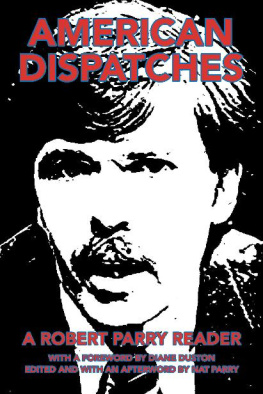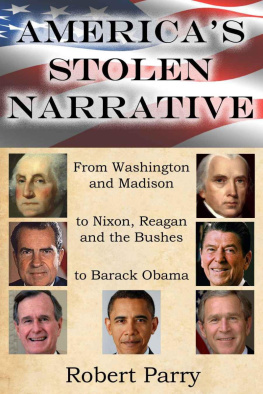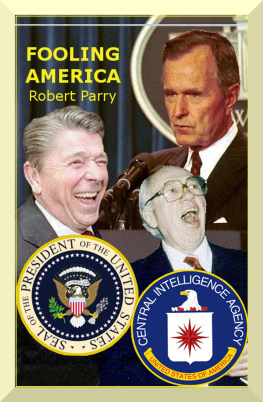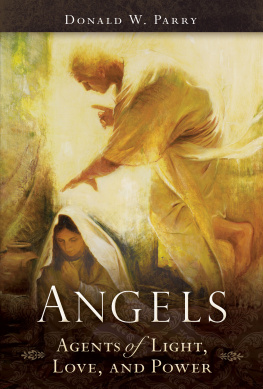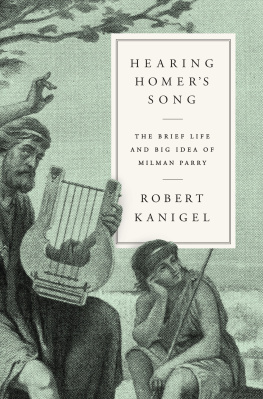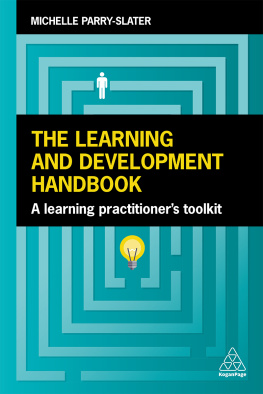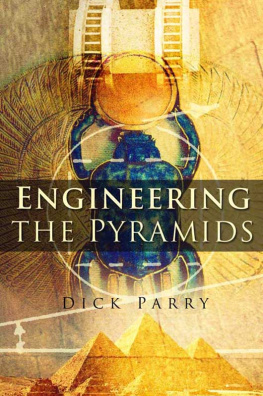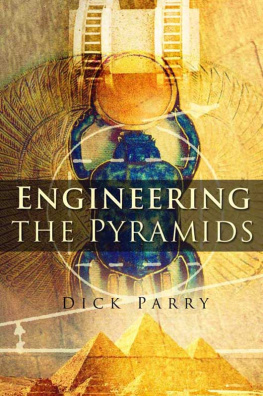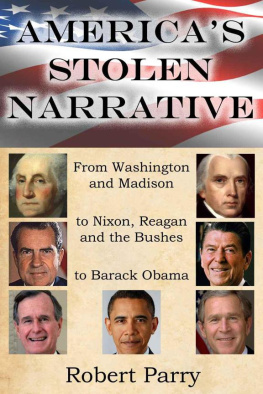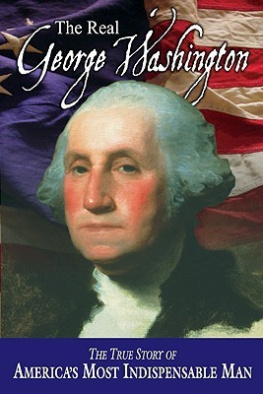AMERICAN
DISPATCHES
A ROBERT PARRY READER
WITH A FOREWORD BY DIANE DUSTON;
EDITED AND WITH AN AFTERWORD BY NAT PARRY
ROBERT PARRY
AMERICAN DISPATCHES
A ROBERT PARRY READER WITH A FOREWORD BY DIANE
DUSTON; EDITED AND WITH AN AFTERWORD BY NAT PARRY
Copyright 2022 Nathaniel Parry.
All rights reserved. No part of this book may be used or reproduced by any means, graphic, electronic, or mechanical, including photocopying, recording, taping or by any information storage retrieval system without the written permission of the author except in the case of brief quotations embodied in critical articles and reviews.
iUniverse
1663 Liberty Drive
Bloomington, IN 47403
www.iuniverse.com
844-349-9409
Because of the dynamic nature of the Internet, any web addresses or links contained in this book may have changed since publication and may no longer be valid. The views expressed in this work are solely those of the author and do not necessarily reflect the views of the publisher, and the publisher hereby disclaims any responsibility for them.
Any people depicted in stock imagery provided by Getty Images are models, and such images are being used for illustrative purposes only.
Certain stock imagery Getty Images.
ISBN: 978-1-6632-3896-2 (sc)
ISBN: 978-1-6632-3895-5 (e)
iUniverse rev. date: 07/13/2022
CONTENTS
PART I
PART II
PART III
PART IV
I met Robert Parry in 1982 when I was transferred to the Washington bureau of The Associated Press. He had already gained a reputation within the AP as a relentless investigative journalist who ruffled the feathers of people in power. At the time, he was digging deeply and seriously into misstatements being made by President Ronald Reagan who had been in office a little over a year.
Bob was on the Special Assignments team and tasked with generating his own stories, but sometimes he would be called upon to cover breaking news. So much so, that he jokingly called his Reagan investigation his hobby.
That hobby would later become the Iran-Contra scandal, but Bob didnt know it at the time. He was just following the leads. While on that trail, he discovered that Lt. Col. Oliver North was running an illegal network from the White House to support the Nicaraguan Contras with profits from arms sales to Iran. He was the first to report on North, but in doing so, he was plowing ground that neither The Associated Press nor any other mainstream news organization had been down before.
My job was to get the story, so I went out to get the story, Bob said in a television interview. The more obstacles they put in my way, the more I got determined to get it. But you pay prices. In the real world, you dont always get the story as easily as you would like to.
Bob knew that those who wrote stories that the White House didnt want written ran the risk of having their careers seriously damaged and possibly ended, but it was a risk he felt compelled to take.
He was the best reporter I had ever met. Id been a professional journalist myself since joining the Toledo Blade in 1971. In 1976, I was hired by the AP in Columbus, OH, became news editor there and was sent to the Raleigh, NC, bureau before being transferred to Washington. I had met and worked alongside plenty of accomplished newsmen and women.
I never partnered with Bob on a story, but I did become his life partner when we married in 1987. He was a wonderful husband, a loving father to his four children, and a fun-loving grandfather to six. He never stopped being a determined journalist, but he always had time for us. He was light-hearted and playful with the family. He entertained his children, grandchildren, nieces and nephews with a silly, smart-mouthed, clueless hand-puppet named Kanga that the rest of us joked was his alter-ego. These connections kept him grounded as he pursued some of the toughest stories of his time.
The way Bob employed his craft met resistance within the mainstream news organizations that employed him. To be first with information that exposes misdeeds by powerful people makes those who run the large news organizations uncomfortable. What if the information is wrong? What if the powerful people that engaged in wrongdoing are friends with the owners of the media organization? Or, in the case of Bobs reporting on Oliver North, what if the bureau chief supervising the stories is also meeting with North to discuss how to free AP Beirut Chief Terry Anderson, a hostage of Hezbollah Shiite Muslims in Lebanon?
Anderson was abducted in 1985 and not freed until 1991. Bob and his reporting partner Brian Barger were digging deeper and deeper into the Reagan administrations illegal support for the right-wing Contra rebels in Nicaragua. They didnt know their bureau chief was meeting with North, the White House point man on Anderson. They couldnt figure out why publication of their well-sourced, important reporting was being delayed.
Even when the bureau chief supported their stories, they would run into obstacles. A now humorous example was an article they wrote about drug-trafficking by the Contras. Nervous editors in APs New York headquarters kept asking for more corroboration. The Washington bureau chief thought the story was going to be killed. It had been going back and forth on the APs internal computer system when it accidentally popped up on the AP desk that translated stories into Spanish for the news organizations Latin American wire. When word got back to New York that the story had been published in newspapers all over Latin America, the red-faced AP quickly produced it for domestic consumption.
But mostly the resistance Bob experienced was not humorous. He became weary of fighting with the AP. After winning the 1984 Polk Award for National Reporting, he was lured away from the wire service by Newsweek . The Iran-Contra hearings were about to start in Congress. The magazine wanted Bobs expertise for its coverage. Unfortunately, it didnt work out the way Bob had hoped. At the AP, he had faced obstacles, but knew how to eventually get his stories out. At Newsweek , he was stifled by what he considered the magazines compulsion to protect the power structure and conventional wisdom.
He left to write his first book, Fooling America: How Washington Insiders Twist the Truth and Manufacture the Conventional Wisdom , published in 1992. He also went to work for PBS Frontline on documentaries that included investigating a long simmering suspicion that the Reagan-Bush campaign in 1980 conspired with Iran to continue to hold 52 Americans hostage as a strategy to prevent re-election of President Jimmy Carter. The Americans had been held captive for 444 days when they were released on Jan. 20, 1981, the day Ronald Reagan was inaugurated as president. That project led to Bobs book Trick or Treason: The October Surprise Mystery , published in 1993. The subject remains a mystery, but Bobs reporting was so carefully sourced and detailed that it is still being used today as a resource for writers and documentarians exploring that and other the topics he covered.
By 1995, Bob had given up on the mainstream media. He was gathering more information than he could convince the big news organizations into using. He needed an outlet for his work, so he turned to the very young World Wide Web. He started Consortiumnews.com, the first internet-based investigative news outlet. He called it Consortium because he wanted it to be a place where other reporters who faced roadblocks within the established press could publish their stories.

